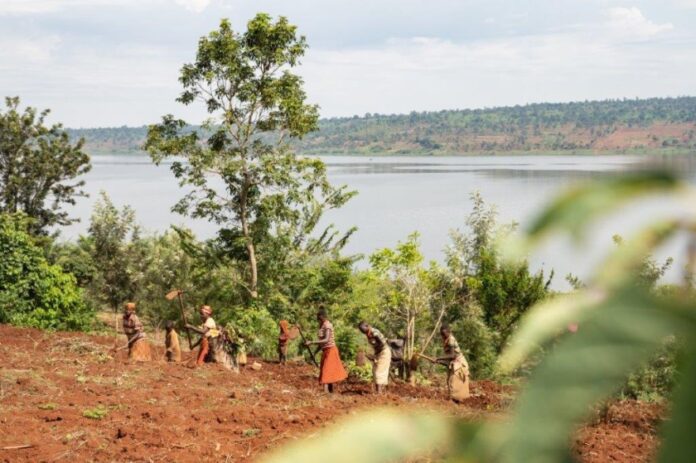
A United Nations Environment Programme (UNEP) project funded by the Adaptation Fund is helping over 2,000 farmers adopt nature-based solutions to adapt to climate crisis.
This follows reports of the farmers faced with a wave of extreme weather that has struck the East African nation in recent years, a product of climate change and the situation is only set to deteriorate as temperatures are expected to rise between 1.5 -2.5°C in the country by 2050.
In addition, rainfall patterns are projected to become more extreme, leading to protracted dry seasons, more flooding and increased erosion with scientists saying that this will put a mounting strain on agriculture, food security and access to safe water across the country.
And now in partnership with Burundi’s Ministry of Environment, Agriculture and Livestock, the project, dubbed the Adapting to Climate Change in the Lake Victoria Basin initiative, has provided funding and training for farming cooperatives to plant 230,000 trees, including avocado and grevillea, to help prevent soil erosion.
Not only do the trees absorb carbon, their roots keep the soil in place and their leaves provide shade from the equatorial sun, slowing evaporation and locking moisture in the soil.
In the Lake Victoria Basin region, farmers tend to till the soil vertically along the slope, which makes the topsoil even more susceptible to erosion from increasingly extreme rainfall.
To stop soil from sliding down the hillside, the project is helping farmers to construct terraces along the contours of 240 hectares of farmland and subsequently stabilizing the terraces by planting elephant grass along their fringes.
The UNEP-supported project in Burundi is also building the capacity of the governments of Rwanda, Uganda, Tanzania and Kenya to establish a regional framework to guide adaptation actions and provide a platform for countries to share best practices for the benefit of 45 million people across the countries.
Regional policy frameworks, informed by experiences on the ground, are vital for adapting to transboundary climate impacts, say those involved.
“The project is demonstrating how small steps taken on the ground, underpinned by a coherent adaptation strategy, can significantly enhance people’s lives and livelihoods,” says Jessica Troni, Head of UNEP’s Climate Change Adaptation Unit.
“Scaling-up such initiatives across the five countries that rely on the Lake Victoria Basin ecosystem has the potential to help millions of farmers and fishermen become more resilient to climate change.”







